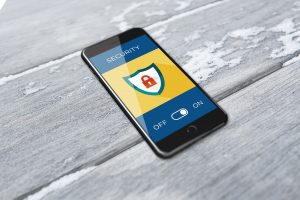The smartphone is our all-time companion, even on holiday at the beach or a lake, and is therefore at risk in many situations. It is also possible to get illegal remote access to mobile devices. The Pegasus spy software has impressively shown how vulnerabilities can be exploited to secretly install software and then monitor communications on the smartphone. Actively protecting your mobile phone from unauthorised access will minimise the risk of pictures, contacts and data regarding banking and shopping portals falling into the wrong hands.
The eco Association gives the mobile users 7 tips to keep in mind in order to prevent unauthorised data access. “The abundance of personal data in a smartphone makes it an increasingly attractive target for cybercriminals to attack. Every user should therefore actively check the security of the device. In the case of actually losing your phone, you will thank yourself for having made provisions in good time,” says Alexander Rabe, Managing Director of eco – Association of the Internet Industry.
- Set up a screen lock.Almost all mobile phones are protected by a SIM lock by default, asking for a SIM card PIN as soon as you switch on the phone. You should definitely keep this and also activate a display lock that can be released with a different code or biometrically via fingerprint or facial recognition.
- Install updates!Updates for the operating system or the installed apps are regularly published by providers. Update your software promptly, as the updates usually include important security features as well as new functions. To save data, activate automatic updates for your apps in the App Store, but set them to run only over Wi-Fi, to keep your apps automatically up-to-date.
- Make backups!Protect your data from loss by storing all photos, videos, calendar data and contacts online. There are many providers that do this for you, for example iCloud, Google Drive or OneDrive. Depending on the provider, you can configure this under Settings / Backup and Restore.
- Only download and use apps from the official app stores, such as Google Play or the Apple App Store. Apps downloaded from unknown websites may contain malicious code. Do not follow any links in an email or other message that leads you to an app download. Rather, it is better to search for the app manually in the official app store and install it from there. Prevent the installation of apps of unknown origin in the settings on your mobile phone.
- Check in advance in the app stores which permissions – for example access to contacts, camera or location – the app needs.Many apps collect more data than seems necessary at first glance. In the settings of the smartphone, the permissions can also be restricted after installation.
- Encrypt your smartphone to avoid data falling into unauthorised hands if the device is lost. More recent operating systems are able to encrypt the user data automatically on the smartphone to protect mails, contacts, photos, downloads or access data. Older smartphones can be manually encrypted in the settings. Also check whether the data on the SD card in the unit is encrypted.
- Be careful in open WiFi networks.In an open WiFi network you can surf for free, but it is also relatively easy for others to eavesdrop on your data traffic. In an open WiFi network, refrain from online banking and all services that require login, such as Amazon or email.




